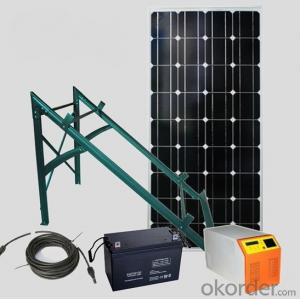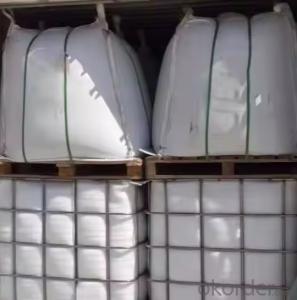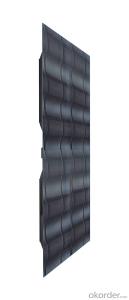High Efficiency off Grid Solar Systems with CE TUV RoHS Approved
- Loading Port:
- Shanghai
- Payment Terms:
- TT or LC
- Min Order Qty:
- 300 watt
- Supply Capability:
- 200000 watt/month
OKorder Service Pledge
OKorder Financial Service
You Might Also Like
| Quick Details | |||||
| Specification: | Normal | Application: | Home | Output Voltage (V): | AC110V/220V |
| Load Power (W): | 1000W | Solar Power (W): | 1000W | Work Time (h): | 24 hours |
| Certifications: | CE TUV RoHS | Cables: | 50m | Solar Panel Rack: | 1 set |
| Battery Rated Voltage: | 24V | Inverter output: | AC220V±5% | Grid Input Voltage: | AC165-275V |
| Rated DC Voltage: | 24V | Solar Input Max Voltage: | DC42V | Rated Ouput Power: | 1000W |
| Solar Panel Type: | Polycrystalline or monocrystalline silicon PV module | ||||
| solar system Specifications: | |||||
| Ref No. | OFF-SGHP-1000W | ||||
| System Basic Information | Solar Panel Rated Output Power: 1000W | ||||
| Solar Power for Daily Consumption: 4000WH | |||||
| Allowable Max Loads Power: 1000W | |||||
| Solar Panel | Crystalline Silicon PV Module solar panel , 250W*4pcs | ||||
| Controller-Inverter | Rated Ouput Power: 1000W | ||||
| Integrator | Rated DC Voltage: 48V | ||||
| Battery Rated Voltage: 48V Can fit the batteries into the box. | |||||
| Battery | 4pcs*12V/120AH per piece | ||||
| Solar Panel Rack | Flat-roof type mounting rack | ||||
| including complete fittings | |||||
| (Other types of racks can be customized as per client's requirement) | |||||
| Cables | 50m | ||||
| Connectors | 1 set | ||||
| Certifications | CE RoHS | ||||
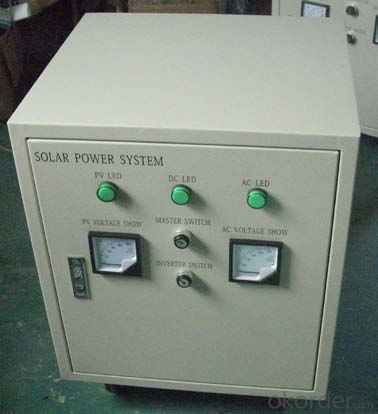
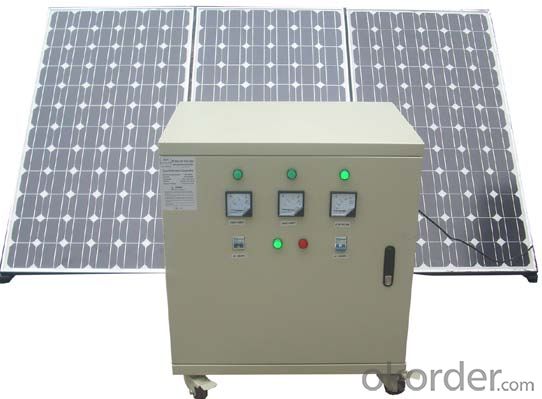
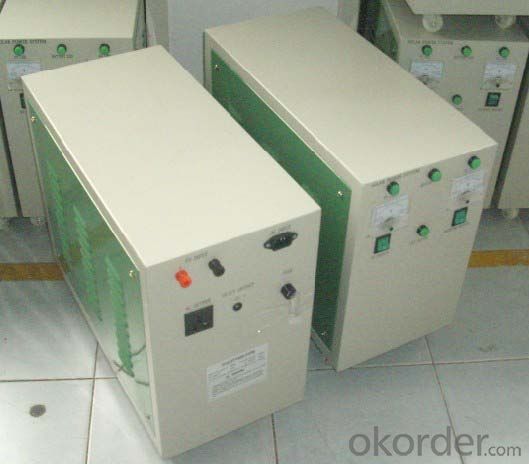
FAQ
We have organized several common questions for our clients,may help you sincerely:
①what price for each watt?
it depends on the quantity, delivery date and payment terms,
②what is your size for each module? can you tell me the parameter of your module?
we have different series of panels in different output, both c-si and a-si. please take the specification sheet for your reference.
③Can you provide the peripheral products of the solar panels, such as the battery, controller, and inverter? If so, can you tell me how do they match each other?
Yes, we can, we have two companies for solar region, one is CNBM International, the other is CNBM engineering Co.
We can provide you not only the solar module but also Solar Cells, the off grid solar system, we can also provide you service with on grid plant.
④What is your warranty system?
Our product performance guarantees for 25 years
• 12 years guarantee for workmanship
• Timeliness of delivery
• Quality Products certified (TÜV, UL, CE, ISO)
⑤How do you pack your products?
We have rich experience on how to pack the panels to make sure the safety on shipment when it arrives at the destination.
⑥ Can you do OEM for us?
Yes, we can.
⑦How long can we receive the product after purchase?
In the purchase of product within three working days, We will arrange the factory delivery as soon as possible. The pecific time of receiving is related to the state and position of customers. Commonly 7 to 10 working days can be served.
- Q:Can solar energy systems be used for powering satellites?
- Yes, solar energy systems can be used for powering satellites. Solar panels on satellites capture sunlight and convert it into electricity, which is stored in batteries for use during periods of darkness or when sunlight is obstructed. This sustainable energy source is reliable and widely used in the space industry to power satellites and other space missions.
- Q:Can solar energy systems be used in apartment buildings or multi-unit dwellings?
- Yes, solar energy systems can be used in apartment buildings or multi-unit dwellings. These systems can be installed on the roof or in common areas to generate clean and renewable energy for the entire building or shared spaces. This allows residents in apartment buildings to benefit from reduced energy costs and a more sustainable living environment.
- Q:Can solar energy systems be financed?
- Yes, solar energy systems can be financed through various options such as loans, leases, power purchase agreements (PPAs), and government incentives. These financial options make it easier for homeowners, businesses, and organizations to invest in solar energy and benefit from long-term energy savings.
- Q:What is the impact of hail on the performance of solar panels?
- Hail can have a significant impact on the performance of solar panels. The impact depends on the size and velocity of the hailstones. Larger hailstones can cause physical damage, such as cracks or dents, to the surface of the solar panels, affecting their efficiency and overall performance. The damage can disrupt the electrical connections and reduce the amount of sunlight that can be converted into electricity. In severe cases, hail can even shatter the panels, rendering them completely non-functional. Therefore, it is crucial to consider protective measures, such as installing hail guards or choosing durable materials, to minimize the potential negative impact of hail on solar panels.
- Q:Can solar energy systems be used in areas with limited access to solar energy training programs?
- Yes, solar energy systems can be used in areas with limited access to solar energy training programs. While training programs can be beneficial in helping individuals understand how to design, install, and maintain solar energy systems, there are various resources available that can still enable people to harness solar energy even without formal training. Online resources, books, and manuals can provide valuable information on solar energy systems, and local experts or organizations can offer guidance and support. Additionally, some solar energy companies may offer on-the-job training or apprenticeship programs to help individuals acquire the necessary skills. Ultimately, with determination and resourcefulness, individuals in areas with limited access to training programs can still utilize solar energy systems effectively.
- Q:What government incentives are available for solar energy systems?
- Solar energy systems are supported by a range of government incentives, encouraging the adoption of renewable energy sources by individuals and businesses. One notable incentive is the federal Investment Tax Credit (ITC), which grants a tax credit of up to 26% of the installation cost. This credit significantly reduces the initial expenses associated with installing solar panels. Moreover, numerous states provide their own incentives to promote solar energy adoption. These can include state tax credits, rebates, grants, or low-interest loans specifically tailored for solar installations. The availability and extent of these incentives vary by state, so it is essential to conduct thorough research on the specific programs offered in your area. Another incentive, known as net metering, allows solar energy system owners to accrue credits for excess electricity generated and fed back into the grid. This means that when your solar panels produce more electricity than you consume, the surplus energy is sent back to the grid, resulting in a credit on your utility bill. Net metering policies differ by state, but they can substantially reduce your electricity costs and even generate income in certain cases. Furthermore, some local governments offer property tax exemptions or abatements for solar energy systems, alleviating the property tax burden for those who install solar panels. This can yield long-term financial benefits and enhance the overall return on investment for solar energy system owners. Lastly, various grants and incentives are available for nonprofit organizations, schools, and government entities aiming to install solar energy systems. These programs seek to foster the adoption of clean energy in public buildings and institutions, thereby decreasing their carbon footprint and energy expenses. It is crucial to note that the availability and particulars of these government incentives may change over time. Therefore, it is advisable to consult with local solar installers, government agencies, or professional tax advisors to ensure you fully capitalize on the incentives available in your area.
- Q:Can solar energy systems be used for agricultural purposes?
- Yes, solar energy systems can be used for agricultural purposes. Solar panels can power various agricultural applications such as irrigation systems, livestock watering, crop drying, and greenhouse heating. By harnessing the sun's energy, farmers can reduce their reliance on traditional energy sources and lower operational costs while promoting sustainability in agriculture.
- Q:Can solar energy systems be used for powering communication systems?
- Yes, solar energy systems can be used to power communication systems. Solar panels can generate electricity from sunlight, which can then be used to power various communication devices such as cell towers, radios, satellites, and even remote communication systems in areas with limited access to the grid. This use of solar energy not only provides a sustainable and renewable source of power but also helps in reducing reliance on fossil fuels and minimizing the environmental impact of communication systems.
- Q:Are there any regulations or permits required for installing solar energy systems?
- Solar energy systems require regulations and permits for installation. The specific requirements vary depending on the location and jurisdiction, as regulations are set at local, state, and national levels. These regulations and permits are in place to ensure the safety of solar energy system installations, compliance with building codes, and adherence to local zoning requirements. Typically, a solar energy system installation requires a building permit. This permit guarantees that the installation is done correctly and follows all necessary safety guidelines. The permit process involves submitting detailed plans and documentation, including structural engineering reports and electrical diagrams. The local building department reviews these documents to ensure compliance with applicable codes and regulations. In addition to building permits, there may be other permits or approvals necessary for solar energy systems. These could include electrical permits, zoning permits, or even historic preservation approvals in certain areas. It is crucial to consult with the relevant authorities and obtain all necessary permits before installing a solar energy system to avoid legal or safety issues. Furthermore, some jurisdictions have specific regulations regarding the size, placement, and design of solar energy systems. These regulations aim to preserve the aesthetics of the area and ensure that the systems do not pose any risks or nuisances to neighboring properties. It is important to note that regulations and permit requirements are constantly changing and can differ significantly from one jurisdiction to another. Therefore, it is advisable to consult with local authorities or hire a professional solar energy installer who is familiar with the local regulations to ensure compliance throughout the installation process.
- Q:Can solar energy systems be used for powering off-grid recreational vehicles?
- Yes, solar energy systems can be used to power off-grid recreational vehicles. Solar panels can be installed on the roof of the vehicle to capture sunlight and convert it into electricity. This renewable energy source can charge the RV's batteries, providing power for various appliances and systems while being independent of traditional power sources.
1. Manufacturer Overview |
|
|---|---|
| Location | |
| Year Established | |
| Annual Output Value | |
| Main Markets | |
| Company Certifications | |
2. Manufacturer Certificates |
|
|---|---|
| a) Certification Name | |
| Range | |
| Reference | |
| Validity Period | |
3. Manufacturer Capability |
|
|---|---|
| a)Trade Capacity | |
| Nearest Port | |
| Export Percentage | |
| No.of Employees in Trade Department | |
| Language Spoken: | |
| b)Factory Information | |
| Factory Size: | |
| No. of Production Lines | |
| Contract Manufacturing | |
| Product Price Range | |
Send your message to us
High Efficiency off Grid Solar Systems with CE TUV RoHS Approved
- Loading Port:
- Shanghai
- Payment Terms:
- TT or LC
- Min Order Qty:
- 300 watt
- Supply Capability:
- 200000 watt/month
OKorder Service Pledge
OKorder Financial Service
Similar products
New products
Hot products
Related keywords
